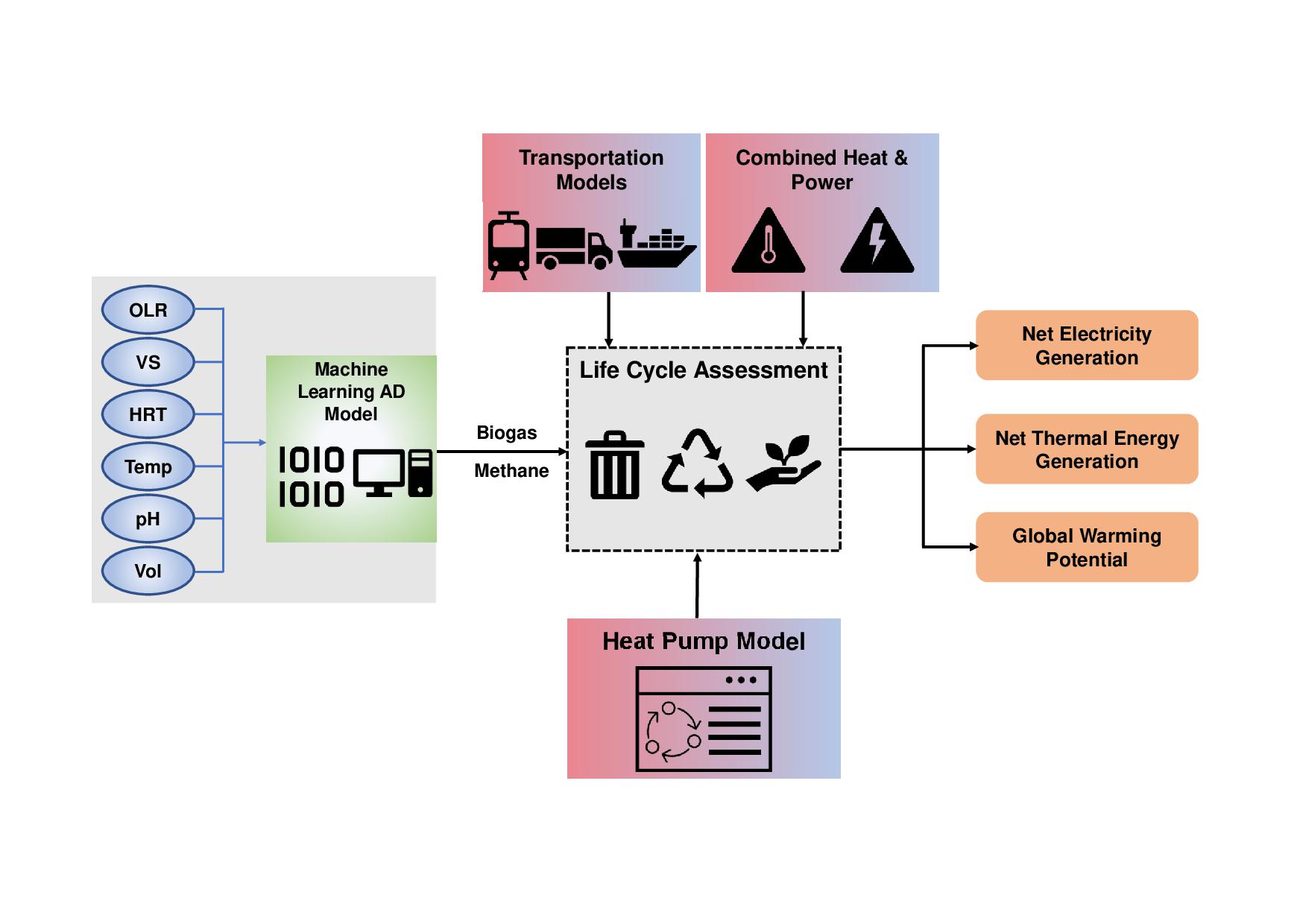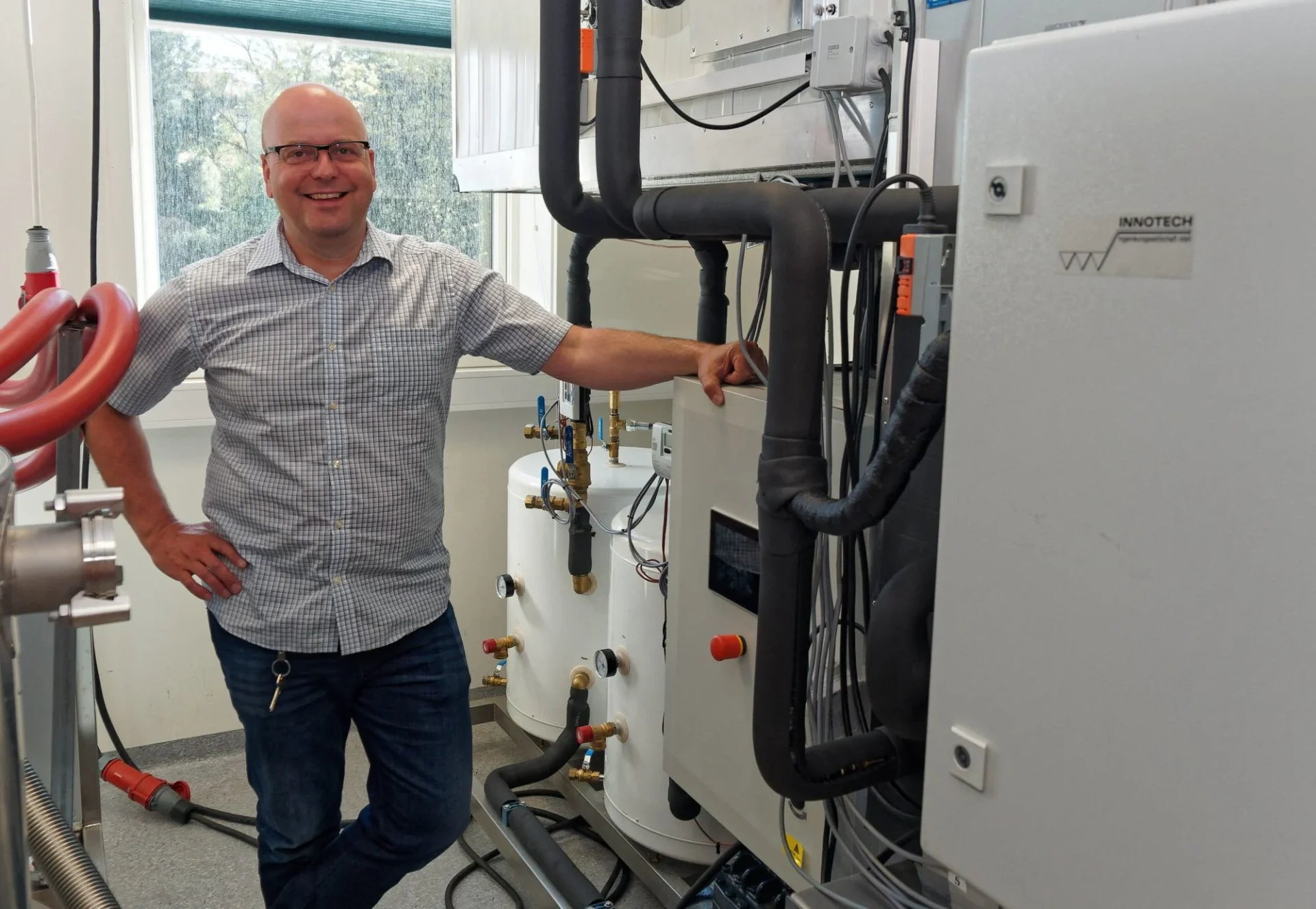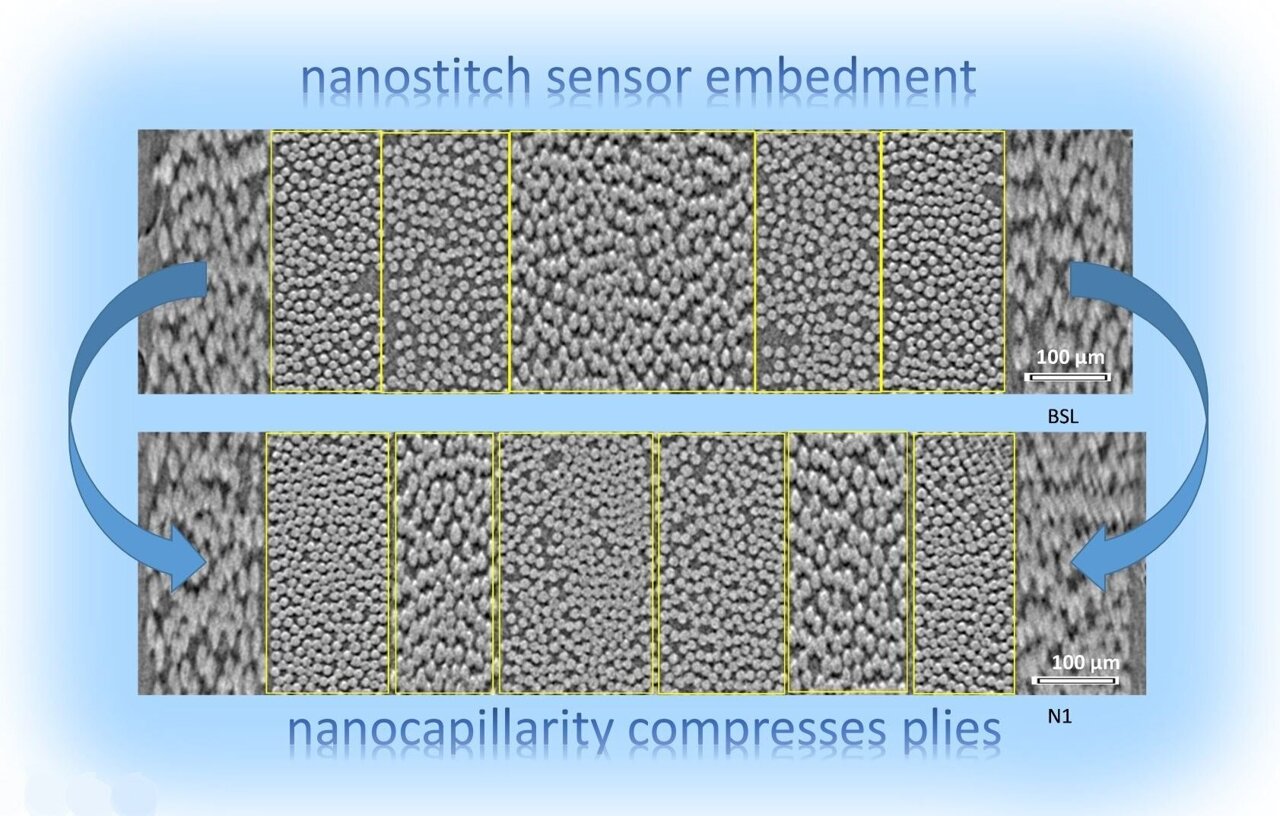
via University of Glasgow
An alternative source of heat could significantly reduce the carbon footprint of a process which turns food waste into power, new research suggests.
A University of Glasgow-led team of scientists have demonstrated that using air-source heat pumps to support anaerobic digestion could cut the carbon emitted during the production of biogas by more than a third.
Their findings could help support ongoing efforts to decarbonise national electricity grids and enable remote communities to produce their own low-carbon power locally.
Anaerobic digestion uses microorganisms in oxygen-free conditions to break down biodegradable materials like food waste and sewage sludge to release biogas – a mixture of methane and carbon dioxide which can be burned to turn turbines, generating low-carbon electricity.
Machines called bioreactors are used to maintain the optimal temperature during anaerobic digestion to maximise the amount of biogas generated.
The researchers set out to investigate how the carbon footprint of bioreactors heated by air-source heat pumps – which draw ambient heat from the air in a low-carbon process – would compare over the length of their lifetime to conventional heating systems which use boilers powered by natural gas.
In a new paper, published in the journal Bioresource Technology, the researchers outline how they created a computer model of the thermodynamics of heat pumps. They coupled the model with machine learning-based anaerobic digestion modelling and trained the new system from a database of existing research.
Then, they tested their new model by providing it with previously unseen real-world data to ensure it produced accurate results.
With their model validated, the researchers set about exploring how the carbon footprint of a heat pump-based system would compare to that of a natural gas-based one over the course of their expected lifespans, using a standardised approach called life cycle assessment.
They found that the heat pump system would emit significantly less carbon than the baseline natural gas system when used to process food waste and sewage sludge.
The modelled carbon reduction was up to 28.1% in an anaerobic digestion process maintained at a temperature of 55°C. At a lower temperature of 37.5°C, the carbon footprint of the process was reduced even further to a maximum of 36.1%.
Original Article: HEAT PUMPS COULD REDUCE BIOGAS CARBON FOOTPRINT BY 36%, RESEARCH SUGGESTS
More from: University of Glasgow
The Latest Updates from Bing News
Go deeper with Bing News on:
Heat pumps
- TradieGuide Set to Launch Informative Regional Guides for Heat Pump Providers
TradieGuide is excited to announce the upcoming launch of its new informational series aimed at helping consumers find top-rated heat pump providers in New Zealand. These new guides, titled Heat Pumps ...
- Heat pumps a hot topic at LWV energy conservation forum
What is the most efficient method for heating and cooling a home? The League of Women Voters (LWV) brought this question to the final forum in their conservation series, Thursday. Mike Daniels, senior ...
- Solar-assisted thermochemical heat pump based on caustic soda, water
Researchers in China have designed a two-stage, solar-assisted thermochemical heat pump system that uses caustic soda and water as a working pair. The system is reportedly able to achieve an energy ...
- Are Heat Pumps the Future of Residential and Commercial Heating?
Heat pumps are gaining popularity as an eco-friendly alternative to gas boilers, with governments and companies investing in the technology to support decarbonization efforts.
- DOE announces initiative to increase manufacturing of rooftop heat pumps
The U.S. Department of Energy (DOE) has announced a new initiative that is designed to help organizations save energy while reducing costs and emissions with heat pumps. The new initiative, called the ...
Go deeper with Bing News on:
Air-source heat pumps
- Heat pumps a hot topic at LWV energy conservation forum
What is the most efficient method for heating and cooling a home? The League of Women Voters (LWV) brought this question to the final forum in their conservation series, Thursday. Mike Daniels, senior ...
- Why Air Source Heat Pumps are Perfect for Rural Homes
With the reality of climate change and the impetus to embrace more sustainable and environmentally friendly modes of heating, traditionally heated homes are considering alternatives. One solution that ...
- Are Heat Pumps the Future of Residential and Commercial Heating?
Heat pumps are gaining popularity as an eco-friendly alternative to gas boilers, with governments and companies investing in the technology to support decarbonization efforts.
- Solar-assisted heat pumps vs. air-source heat pumps
A group of researchers in Iran has analyzed the coefficient of performance and the energy consumption of a solar-assisted heat pumps and an air-source heat pumps and has found that three factors are ...
- How Heat Pumps Could Save Most Americans Money on Energy
The NREL study, published in the journal Joule, focused on air-source heat pumps, which are less expensive but also less efficient than their geothermal cousins. Air-source heat pumps cycle a ...










